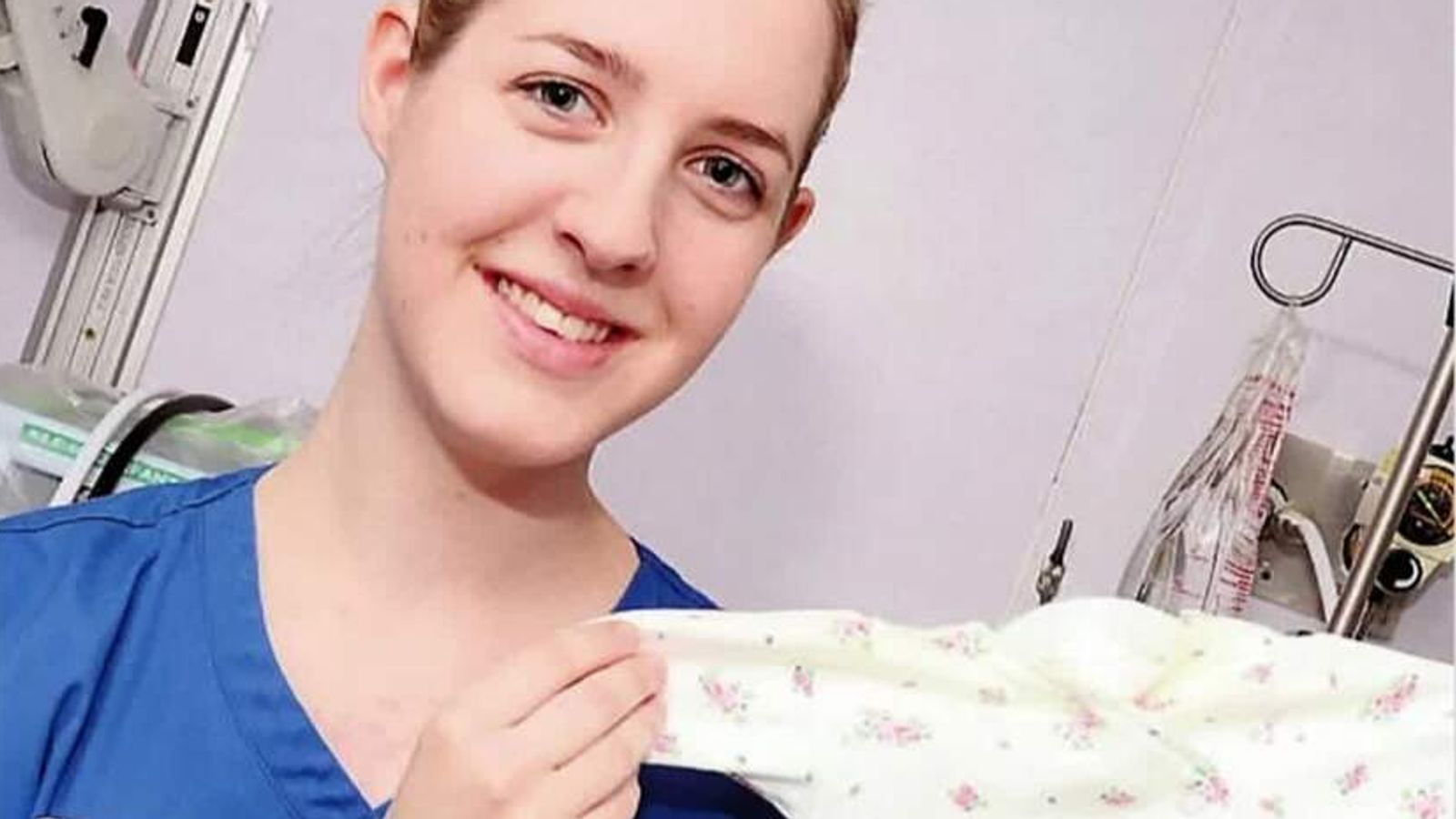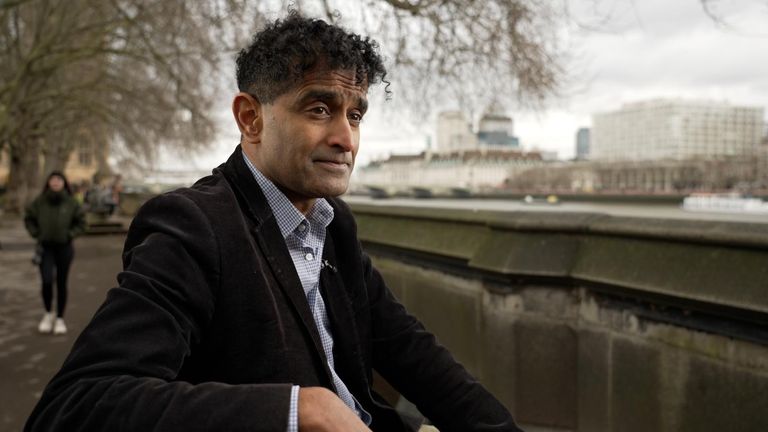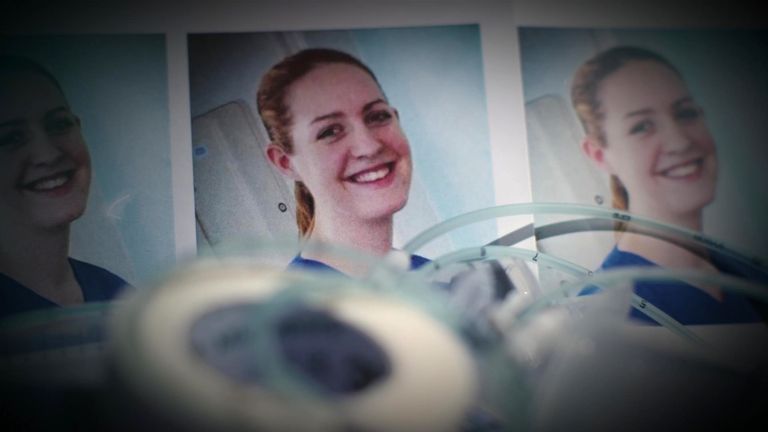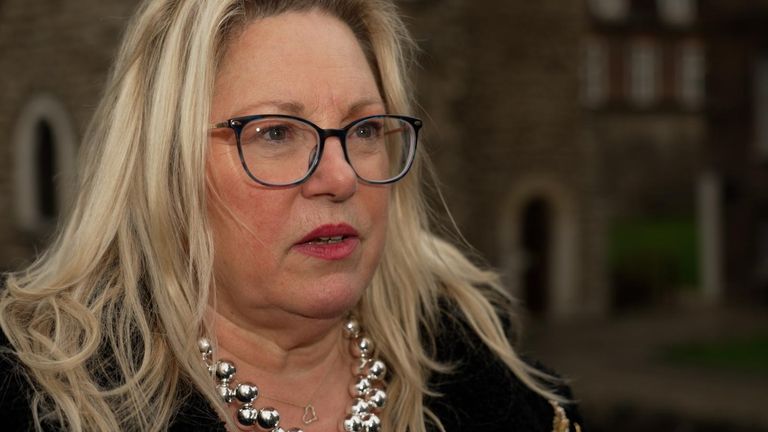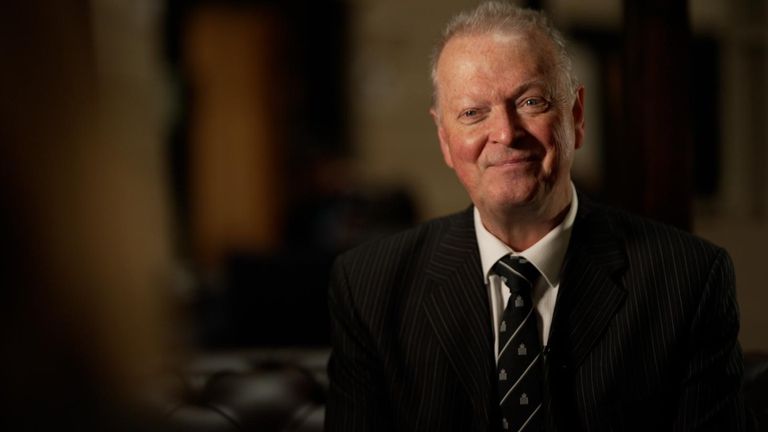An NHS consultant at the hospital where Lucy Letby murdered seven babies has warned the health service is “almost guaranteeing” another big scandal if whistleblowers are not offered more protection.
Dr Ravi Jayaram, a consultant paediatrician at the Countess of Chester Hospital where Letby killed the babies and attempted to murder six more, says “the system is stacked against the whistleblower”.
The nurse was able to carry out her crimes after the concerns of whistleblowers at the hospital were ignored. It also emerged managers there took 11 months to involve police after suspicions were raised.
In an interview with Sky News, Dr Jayaram backs proposed reform to whistleblowing legislation as part of a private members bill which is due its second reading in the Commons on Friday.
It calls for an independent “Office of the Whistleblower”, which would offer more protection to all members of the public.
“If things stay the same, then the behaviours will stay the same,” Dr Jayaram says, “there will continue to be times when people are too scared to raise concerns for fear of personal harm and retribution.”
He describes a general “culture of cover-up” with “major implications” for not just healthcare, and patient safety, but “across all institutions”.
“By not acting now we’re almost guaranteeing another big NHS scandal… another revelation such as Shrewsbury and Telford, such as the Post Office.”
Currently whistleblowing in the UK is protected by the Public Interest Disclosure Act (PIDA), which was introduced 25 years ago.
It allows a whistleblower to seek compensation through an employment tribunal if they suffer a detriment because of raising concerns.
It has, however, been criticised for being costly and not addressing or forcing investigations into the reasons behind the whistleblowing.
Georgina Halford-Hall, director of the WhistleblowersUK not-for-profit organisation that supports whistleblowers, says existing legislation “turns a serious concern that might be about the death of babies, or massive fraud, into a simple dispute between an employer and a worker”.
“The allegations get lost somewhere in the system.”
“Currently legislation incentivises wrongdoing because nobody’s held to account,” she continues, adding that if the law had changed years ago the Post Office scandal may never have happened.
“We know that there were whistleblowers at the Post Office. We know there were whistleblowers across all of the hospitals, and nobody is listening to them.”
Read more:
Doctors will be ‘supported to speak out’ under new guidelines
How police caught Lucy Letby
‘I couldn’t see a way out’
Peter Duffy worked as a consultant urologist at Morecambe Bay NHS Trust and raised concerns about widespread harm in his department.
He left his job as a result, and has since retired early from the medical profession.
“You’re just doing your job,” he says, “it’s only when it’s too late you realise you’re a whistleblower.”
He describes wanting to take his own life due to the toll it took on him personally and professionally: “I couldn’t see a way out.”
Aaron Cummins, chief executive at University Hospitals of Morecambe Bay NHS Foundation Trust, says a 2019 independent investigation looked into all concerns raised about the trust’s urology services.
“We encourage colleagues working at the trust to speak up where they have concerns about patient safety or the wellbeing of their colleagues”, he says, “and work hard to foster an environment where raising concerns is prioritised and respected as an essential part of our core business.
“We acknowledge that governance at the trust was not good enough in the past and issues raised were not always addressed.
“There is still more to do, and our priority now is to make further progress and ensure all improvements are robust and sustainable.”
Mr Duffy is also backing the new bill proposing an Office of the Whistleblower, which would have powers to force action and refer criminal offences for investigation.
If it passes through parliament it would also mean the government would have to initially fund the central body.
Eventually more funding would come from fines imposed on organisations.
Mary Robinson, chair of the All-Party Parliamentary Group (APPG) for Whistleblowing, believes it would “save money” long term by “ending the culture of cover-up”.
“There’s a cost to this cover-up”, she says, “there is a cost to paying people off when they’ve been unfairly dismissed, and also a cost in human lives”.
“It would prevent more cases because it will change the culture in organisations and we need to bring about that culture change.”
A government review of existing UK whistleblowing legislation was due to be published in Autumn 2023, but has been delayed.
No reasons have been given for the delay but a department for business and trade spokesperson said it will be published “later this year”.
Anyone feeling emotionally distressed or suicidal can call Samaritans for help on 116 123 or email jo@samaritans.org in the UK. In the US, call the Samaritans branch in your area or 1 (800) 273-TALK
